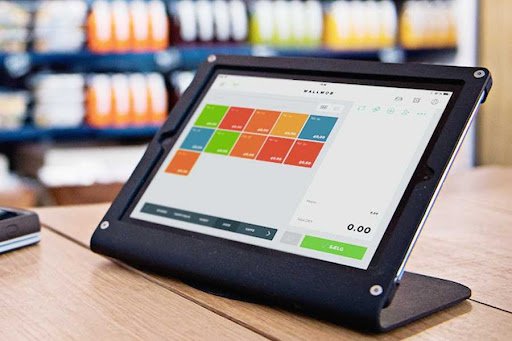A POS system, or point of sale system is a computerized system that allows your business to track inventory and sales. The “point of sale” refers to the place in the store where customers make purchases. In many stores, this is at a cash register. POS systems provide an organized flow of information from sales transactions back to an organization’s accounting system. These systems eliminate manual data entry and allow businesses to track sales, inventory, and other important business information easily.
As a small business owner, you should be aware of the benefits of POS systems and keep an eye out for new technology that might help your business become more efficient and profitable:
POS systems provide faster transaction processing. In a competitive retail environment, you need to get customers in and out of your store quickly while keeping them satisfied with the shopping experience. A POS system can handle multiple tasks at once without slowing down transactions. It processes credit cards, prints receipts, updates inventory information and more with greater speed than manual methods allow.
POS systems also reduce the amount of time employees spend on clerical tasks. This gives workers more time to engage with customers, help them find what they are looking for or up-sell related products. POS systems have the ability to automate laborious business processes so your employees can focus their efforts elsewhere.
POS systems provide greater data accuracy than manual methods. Businesses that depend on manual processes to collect data are subject to human error that can result in clerical mistakes, time spent re-entering transactions, and inaccuracies with inventory tracking. POS systems provide real-time reporting on sales, inventory levels, and business operations so you’ll always have the most accurate information at your fingertips. This makes it easier to take quick action if a problem arises.
Many systems can be accessed remotely, giving you access to important information from any computer or mobile device with Internet access. This is useful if you’re traveling and need to keep an eye on your business’s health or want to check inventory levels before a big sale. You’ll never have to worry about being out of touch with everything that’s happening at your store.
You can use POS systems to create loyalty programs that encourage customer retention and increase sales over time. These features allow you to collect important data on what products are most popular, what times of the year are best for certain types of purchases, which marketing strategies are working best, and more. This information allows you to modify your business’s practices and grow your customer base through targeted offerings.
POS systems also provide a rich source of data for market research, including demographics on customers and their buying habits. If you’re ever unsure about what products to offer in which locations, POS data can help guide these important decisions. As a small business owner, you can’t afford to ignore the benefits of good market research.
You’ll also improve customer satisfaction when you use POS systems in your business. Customers want to be treated well no matter where they shop and how you treat them is often directly related to whether or not they make additional purchases after the initial sale.
POS systems provide real-time information you can use to reflect the amount of business a customer does with your company and give them an incentive to buy more. This dynamic is important for retail stores, restaurants and other businesses where many purchases take place at the same time.
Some POS systems provide alerts that let store clerks know when they’ve rung up a transaction involving a preferred customer. This information can be used to reward customers with discounts or other incentives for continued business at your store.
